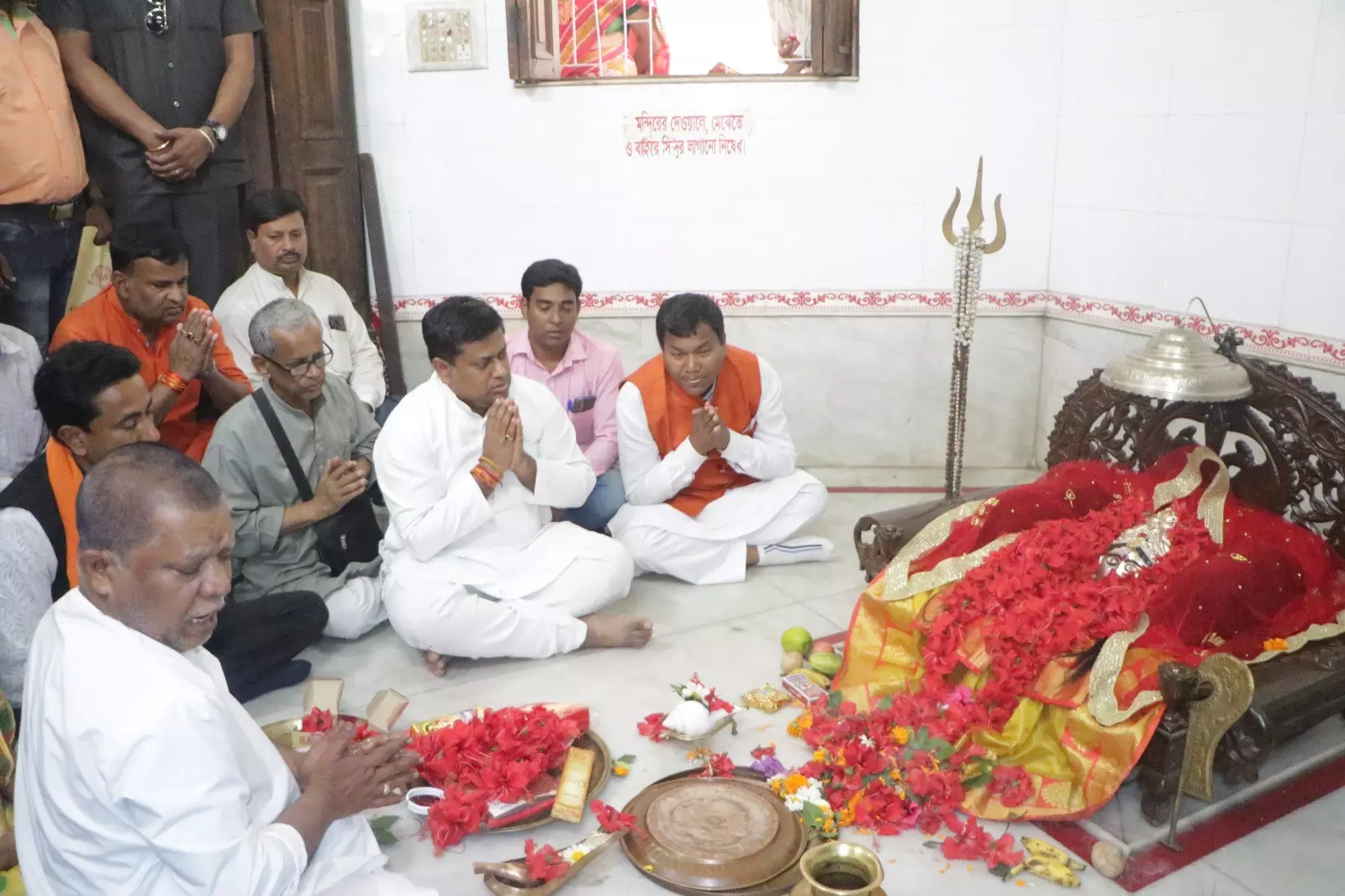
Bengal: BJP all set to whip up Hindutva sentiments during Ram Navami celebrations
Although BJP doesn’t organise any Ram Navami event under its banner, state leaders overwhelmingly take part in the festival celebrations that have come to polarize Bengal

Ram Navami, which marks the birth of Hindu god Rama, will be celebrated this year on April 17, just two days before the start of the seven-phase elections in India
The Bharatiya Janata Party (BJP) sees this as an opportunity to bring the focus back on Ram to whip up Hindutva sentiments in West Bengal, even as party members are divided in their opinion about the political significance of the deity in the state.
The Sangh Parivar, of which the BJP is an important constituent, organised Ram pujan sabhas across the state on January 22, the day a grand Ram temple was consecrated at Ayodhya.
Ram's appeal
The event received a mixed response. The BJP and its larger Sangh Parivar also facilitated Hindu devotees from the state to visit the newly-built temple. So far, about 50,000 pilgrims have availed the pilgrimage offer.
To build on the response around the Ram Temple inauguration, the saffron brigade has decided to scale up Ram Navami celebrations in the state this year.
“In every block there will be Ram Navami celebration. Religious processions will be brought out in villages and urban centres,” said Sachindranath Singha, the Vishwa Hindu Parishad (VHP) national assistant secretary and the Bengal in-charge.
Communal violence
Singha, however, said the celebrations will have nothing to do with elections, adding that the inauguration of the Ram temple in Ayodhya earlier this year made the occasion more special.
Although the BJP does not organise any Ram Navami event under its banner, its state leaders overwhelmingly take part in the celebrations that have become a polarizing occasion in Bengal.
At least one person was killed and several others, including policemen, were injured in communal clashes during Ram Navami processions in various parts of the state in March last year.
Election impact
Such clashes during Ram Navami have become a norm in the state ever since the then Bengal BJP president Dilip Ghosh made the celebration one of the major religious events of the state in 2018. Ram Navami was not celebrated with much gusto in the state prior to that.
Many had attributed the Ram-centric Hindutva frenzy that Ghosh had attempted to the BJP’s spectacular performance in the 2019 Lok Sabha elections, when its vote share jumped to more than 40 per cent from about 17 per cent it had secured in 2014.
Mamata’s counter
Mamata Banerjee’s Trinamool Congress soon spun a counter poll narrative around Bengali sub-nationalism and centered around local culture and religious practices. It pitted popular local Hindu deities such as Durga and Kali against Ram, who is more widely worshiped in north India.
After the BJP failed to repeat its impressive performance of 2019 in the Assembly elections of 2021, many in the BJP questioned the effectiveness of raising political slogans hailing Ram in Bengal.
Ram’s limitations
“… There is no need to give up ‘Jai Shri Ram’. But ‘Jai Ma Kali’ or ‘Jai Ma Durga’ is much closer to our Bengali hearts. Each part of Hindu India has its own ‘Ishta Devata’. In Bengal it is Ma Kali, in Odisha Prabhu Jagannath, in Assam Shankar Deva,” senior state BJP leader Tathagata Roy commented last year.
The Bengal unit highlighted this concern when BJP leaders from 12 eastern and north-eastern states went to a huddle last year in Guwahati to discuss the party’s likely strategy for the 2024 parliamentary elections in these states.
Durga and Kali
Prime Minister Narendra Modi too in his election rallies in Bengal this month invoked matrishakti embodied by Durga and Kali.
The two female deities, however, do not induce as much Hindu euphoria as Ram does ever since Hindu mobs demolished the 16th century Babri Masjid on December 6, 1992 to “reclaim” his birthplace in Ayodhya.
Hence, the BJP will not let go any opportunity to showcase Ram to consolidate Hindu votes even as it makes an attempt to find a regional-connect to its Hindutva ideology.
Organising Hindus
“As in the past, the Ram temple will benefit the BJP by uniting Hindus across the country, including Bengal,” former BJP state president Ghosh said.
State BJP leaders have started making preparations to organise Ram Navami programmes in their areas under the banner of the VHP and Hindu Jagran Manch.
“We are not sure whether the Election Commission will give permission to political leaders to attend Ram Navami processions in three constituencies (Alipurduars, Cooch Behar, Jalpaiguri) that will go to polls on April 19. But even if we are not allowed to attend, we will do everything possible to make the celebration successful,” said a BJP leader from North Bengal.
Public holiday
Anticipating that the BJP will try to use Ram Navami to galvanise Hindu votes, particularly in the state’s Hindi-speaking pockets, the TMC government has for the first time declared a public holiday on the occasion this year.
BJP IT cell head Amit Malviya claimed that Mamata Banerjee made the announcement “to redeem her anti-Hindu image” but it’s “too late”.
Hindu flavour
TMC spokesman Kunal Ghosh responded to the BJP taunt thus: “The TMC does not use religion to get votes. People will continue to support us because of the performance of our party-led government.”
Amidst such claims and counter claims lie a stark reality that be it ‘Jai Shri Ram’ or ‘Jai Ma Durga’ as the catchphrase of this election season, politics in the state is all set to get more Hindufied.
